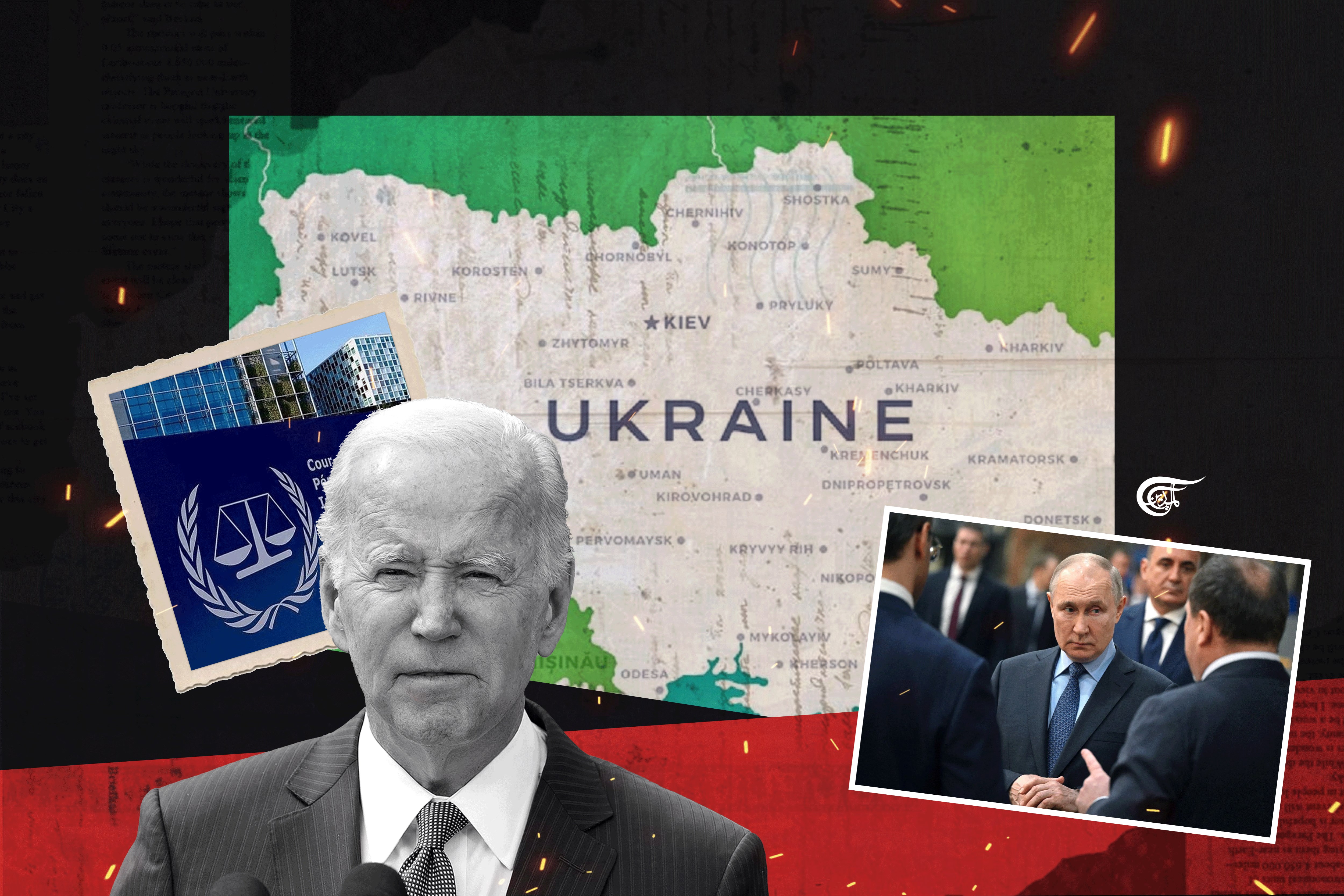Why is America lagging behind on key international diplomatic initiatives?
Washington and London perhaps would never be made accountable for wreaking mayhem and humanitarian crises around the world. However, the US could still make a positive contribution to safeguard international stability and resolve a conflict threatening to shape into a "mother of all forever wars" for Americans.
-

By shelving the ideological approach and backing peace efforts, the US could still make a positive contribution to safeguard international stability and resolve a conflict threatening to shape into a "mother of all forever wars" for Americans.
As Russia took over the presidency of the United Nations Security Council (UNSC), the US said “a country that flagrantly violates the UN Charter and invades its neighbor has no place” on the body. In the same breath, the world’s superpower expressed its vulnerability by urging Moscow to oversee the Council “professionally.”
The US, of course, had no means to block Russia’s ascent to the most powerful UN organ, originally established to foster peace, achieve synchronization among nations across regions, and resolve international issues. Should there be any, Washington, with a history of serial invasions, lacked the fiber to demand such high moral standards.
March 2023, incidentally, marked the 20th anniversary of the US invasion of Iraq. In 2003, the Bush administration lied to Americans and the international community that Saddam Hussein had reconstituted his nuclear weapons and stockpiled biological and chemical weapons, and proceeded to invade Iraq with allies in a search for these weapons of mass destruction (WMD).
Once Iraq was ravaged, not “one bit” of the US intelligence community’s assessments could be confirmed, according to the country’s own Commission’s report on Saddam's alleged WMD that characterized the lapse as “one of the most public – and most damaging – intelligence failures in recent American history.”
Both then-US President George W. Bush and Secretary of State Colin Powell admitted the mass failure in detecting “the world’s most destructive weapons” and regretted a “terrible mistake on all our parts” in Iraq, but without any accountability for a war, which was described as "illegal" by the UN Secretary-General Kofi Annan in 2004, as it breached the UN Charter.
These days, there are more instances of US hypocrisy, of the delusion of grandeur, and sanctimony than ever. For example, knowing that his own country didn’t recognize the International Criminal Court (ICC) and never ratified the Rome Statute, US President Joe Biden recently described The Hague-based institution’s arrest warrant against Russian President Vladimir Putin over alleged war crimes as “justified.”
If anything, the US has great detest for the ICC. Just a month after the court began operations in 2002, the US Congress passed the American Service-Members’ Protection Act (The Hague Invasion Act) and authorized the US president “to use all means”, including the use of military force, to liberate any American or allied nation’s detainee from the court.
The World Court has no retrospective jurisdiction for crimes committed before July, 1, 2002. The ICC could have held America responsible for its war crimes thereafter, yet it focused on unfairly targeting Africans. In 2018, the court did make an effort to charge the US military with war crimes in Afghanistan; the body was dubbed “unaccountable” and “outright dangerous” by the US and was threatened with financial sanctions and bans, and the court's officials were threatened with prosecution in the US criminal system. A couple of years later, the US government accused the ICC of making “illegitimate attempts to subject Americans to its jurisdiction” and banned its officials.
Over the years, the US has made serial invasions of a number of countries, with allies such as Australia and "Israel" being found guilty of slitting boys’ throats in Afghanistan and killing children in Palestine. Will international leaders and organizations cheering the ICC decision on Putin hold for a moment and ask the US to repeal the controversial legislation and make Americans and allies accountable for their war crimes? The sudden change of heart is certainly for non-allies and adversaries only; the US and allies still remain untouchable for what they did in Afghanistan and the Middle East with sheer impunity.
Just a brief assessment of the US approach toward the ICC could reveal that the Biden administration’s support of the court’s decision is simulated. History shows how for decades, the Democrats, Republicans and military establishment have been working hand in glove to assert the US hegemony the world over and to bury America’s bloodstained invasive past.
The US should stop playing geopolitics around the ICC, given that Russia isn’t party to the 123-nation agreement, and this approach thwarts peace efforts to find a diplomatic solution to the Ukraine war. Even John Bolton, who blasted the ICC as the US National Security Advisor in September 2018, says it is a “dangerous” and “fundamentally illegitimate” organization that may potentially threaten attempts at peace in Ukraine.
China has been targeted for its neutrality in the Ukraine conflict, yet over time, the European leaders are gradually realizing this impartial position, without getting into aggressor-victim debate, may be helpful to bring warring parties on the table for a negotiated solution. They now recognize that "the West against the rest" approach, and a tense political, economic, societal and scientific relationship with the world's second-largest economy isn't a viable solution.
By brokering a peace deal between Saudi Arabia and Iran, China has demonstrated its worth as a major international stakeholder and showed its muscle as a possible diplomatic interlocutor between Russia and Ukraine. Spain's Prime Minister Pedro Sánchez recently called Beijing a "global actor"; French President Emmanuel Macron, visiting China along with the European Commission President Ursula von der Leyen, wants Beijing to "play a major role" in bringing peace back.
For the first time in many years, the US seems to be completely isolated from key international developments. Washington abandoned the Middle East to strengthen and/or expand its military footprint in the Indo-Pacific and focused on Europe to simultaneously counter China, America's "most consequential geopolitical challenge," and Russia's aggression. But in the end, it looks as if Washington is on track to concede all its allies to Beijing.
Not long ago, Washington sought a dialogue and comprehensive ceasefire with the Taliban in Afghanistan; the White House has been opposed to such an arrangement in Ukraine. This is not only because Biden fears any China-led peace will be a diplomatic victory for its strategic rival, but also because this would smite his effort of portraying the Ukraine conflict as part of a great struggle between autocracies and democracies.
Yet it is happening anyway. The Global South views China as a peacemaker and the US as a warmonger; the number of geopolitically non-aligned or neutral countries on the Ukraine issue is increasing as Russia musters support from the developing world. Even one of the closest American allies, Japan, is reportedly ditching the Biden administration by buying oil from Russia at a price above the $60/barrel cap.
As per a former British official, the Western-led international order began to actually crumble after the invasion of Iraq by the US and the UK in violation of the UN Charter, and this punches another hole in the US narrative of respecting international law and territorial integrity of other countries and upholding world peace.
Washington and London perhaps would never be made accountable for wreaking mayhem and humanitarian crises in Afghanistan, Pakistan, Iraq, and the rest of the Middle East. Plowing the sands to hold Russia responsible for the Ukraine crisis will most likely meet a similar fate. However, by shelving the ideological approach and backing peace efforts, the US could still make a positive contribution to safeguard international stability and resolve a conflict threatening to shape into a "mother of all forever wars" for Americans.

 Azhar Azam
Azhar Azam
 7 Min Read
7 Min Read












